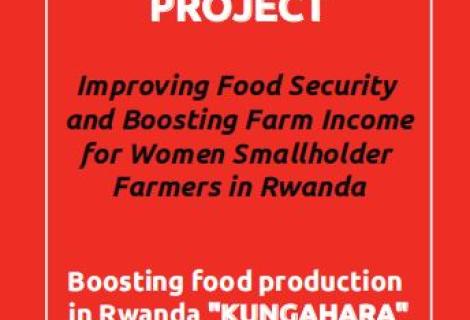
IFS - KUNGAHARA PROJECT
AAR has secured a grant from the European Union to implement a 3-year Project entitled “Improving Food Security and Boosting Farm Income for Women Smallholder Farmers in Rwanda” (IFS). The "Kungahara Project" will be implemented jointly with TUBIBE AMAHORO. It will operate in Nyaruguru, Gisagara, Nyanza, Musanze, and Karongi Districts, working closely with women cooperatives to provide support. The project focuses on promoting access to land, building resilient livelihoods, enhancing food security, promoting agro-ecology, and ensuring a sustainable environment.
The economic backbone of Rwanda lies in agriculture, involving 70% of its population, with many engaged in subsistence farming on small, vulnerable plots. Climate change poses a significant threat, exacerbating the impact of droughts and heavy rainfall, endangering livelihoods and food security. The COVID-19 pandemic and Russia's war in Ukraine have further strained the country's resilience, particularly in food, fuel, and fertilizer supplies, raising concerns about increased hunger levels and food insecurity. Addressing these challenges,
this project aims to tackle three main issues: low food production and income among female farmers, high levels of food insecurity and undernutrition, and the impacts of global crises on local markets. By supporting women-led cooperatives and promoting sustainable agriculture, the initiative seeks to improve food availability and affordability, aligning with broader development goals and international efforts to enhance food security. Synergy with existing programs and collaborations with other initiatives enhance the potential for wider impact and effective response to these multifaceted challenges.
The Project significantly contributes to global objectives by promoting food production and addressing malnutrition in Rwanda, supporting a sustainable food system. It targets small-scale women farmers' cooperatives, empowering them with farming skills and access to inputs like agri-forestry and post-harvest technologies.
Strengthening local selling points, it fosters inclusive agricultural chains, improving food availability. Aligned with Rwanda's development plans, it supports smallholder farmers and contributes to national food security policies. Leveraging the National School Feeding Policy, it boosts food production and income for women farmers, advocating for gender-responsive planning in district strategies.